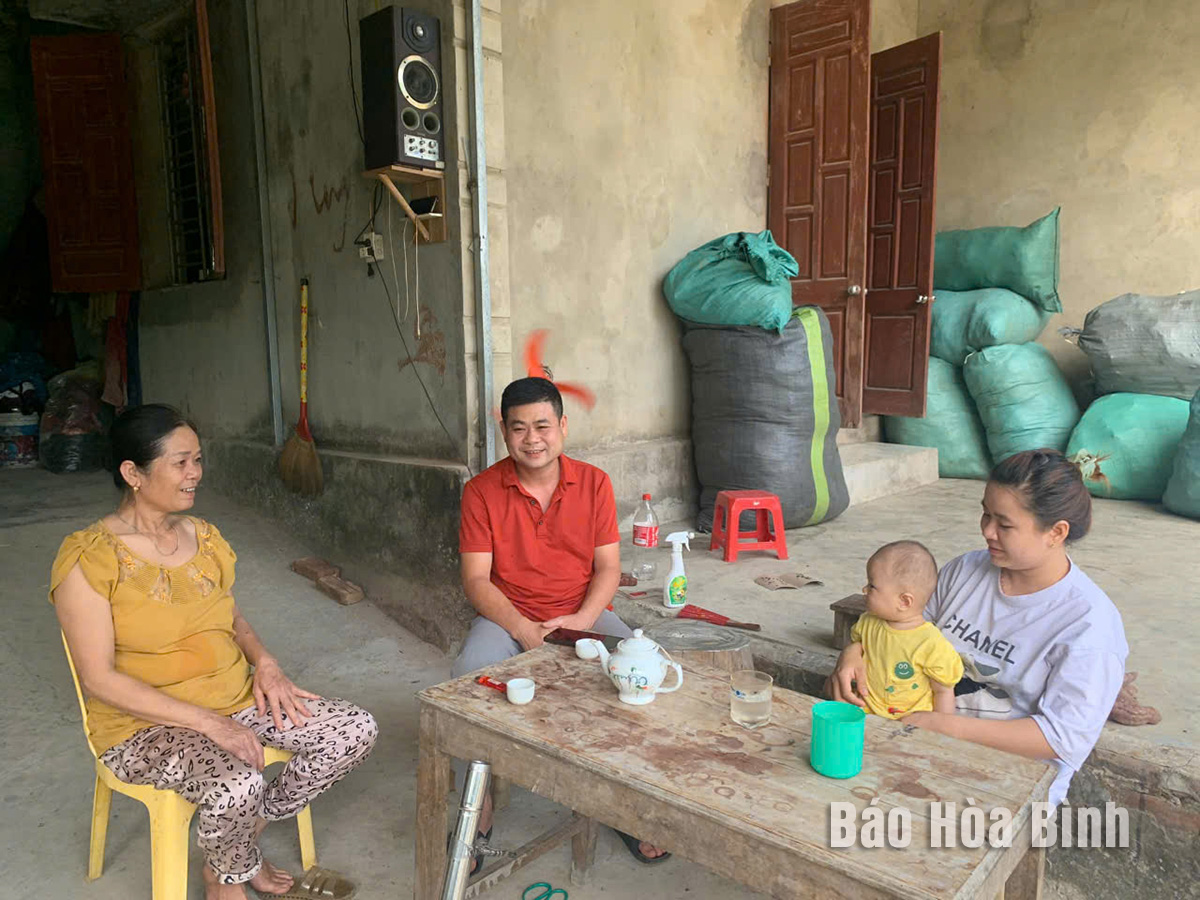
In recent years, the People's Committee of Lac Thuy district has directed units and mass organisations to promote the popularisation of the Party's policies and resolutions and the State's laws, as well as issued guiding documents on local religious affairs.
The Secretary of the Party cell in Dong
Danh village, Phu Thanh commune (Lac Thuy district), meets local parishioners
to disseminate policies and laws on belief and religion.
Through reviewing the situation of religious
activities, authorities found no organisations called "Hoi thanh Duc Chua Troi
Me” (World Mission Society Church of God) operating in the district. However,
in Yen Bong commune, there are two citizens participating in this organisation
through the Zoom application following the link of the Youtube channel
"Hoi Thanh cua Duc Chua Troi" on every Tuesday and Saturday. The
Party Committee and People's Committee of Yen Bong commune have directed local
police, departments, and sectors to persuade these two citizens not to
participate in the organisation in any form.
Statistics show that there are 72 places of
worship, including temples, communal houses, and shrines across Lac Thuy.
Belief practices primarily follow folk beliefs, adhering to the customs,
traditions, and ethics of the nation. There are two religions in the district,
Buddhism and Catholicism, with over 15,000 followers who live in all the 10
communal-level localities of Lac Thuy.
Religious organisations have seriously complied
with legal regulations, conducting religious activities in accordance with
their charters and principles. There are no superstitious practices, abuse of
spiritual beliefs at places of worship, or abuse of religions to incite
gatherings that disrupt public order.
Religious dignitaries and followers have
properly adhered to the Party's policies and the State’s laws. They have also
actively encouraged their fellows to lead "a good secular and religious
life", enthusiastically worked, engaged in humanitarian and charitable
activities in the community, contributed to socio-economic development, and
helped maintain public order and social safety in the locality.
Besides, all-level administrations have always
facilitated activities of religious organisations and practitioners in
accordance with the law, ensuring the people's freedom of belief and religion.
Vice Chairman of the Lac Thuy People's Committee
Nguyen Ngoc Van stated the district always pays attention to and creates
favourable conditions for religious organisations, dignitaries, and followers
to practice their beliefs and religions in line with legal regulations. It has
moved quickly to meet their legitimate demand related to belief and religion.
Local authorities have also organised meetings,
visited and presented gifts to belief and religious establishments on the
occasion of the Lunar New Year (Tet) as well as important festivals. In
addition, they have promptly updated locals about the Party and State's
guidelines and policies regarding religious and belief affairs, he added.
Mai Chau district has firmly established itself as a standout destination on Vietnam’s tourism map, attracting both domestic and international visitors with its breathtaking landscapes, rich ethnic culture, and warm hospitality. However, beyond its natural and cultural charm, a secure and well-managed tourism environment has added to Mai Chau’s appeal.
As Vietnam enters a new phase of economic and administrative reform in 2025, Hoa Binh province is stepping up its efforts to streamline governance, boost economic growth, and attract investment.
The Hoa Binh provincial People's Committee held its monthly meeting on March 26 to review the progress of key projects, assess budget revenue and public investment disbursement, provide feedback on draft documents for submission to the provincial Party Committee's Standing Board, and discuss other important matters related to the committee's governance activities.
Playing a key role in Hoa Binh province’s economic development, Luong Son district has been focusing on science and technology development, innovation, and digital transformation.
Identifying the application of online public services as a key step in administrative procedure reform and e-government building, Kim Boi district has proactively provided services and supported residents and businesses in accessing and utilising full-process online public services promptly and efficiently. The locality aims to lift the rate of end-to-end online public services to over 90%, with all officials and civil servants handling tasks in the digital environment.
Nguyen Anh Tuyet, hailing from a family steeped in the ancient art of herbal medicine, is transforming local medicinal herbs into high-value concentrated extracts, elevating their worth and healing potential.



